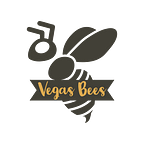Bees and the Barnyard
Bees and the Barnyard: A Wonderful and Symbiotic Relationship
In the diverse ecosystem of a barnyard, bees play a vital role in maintaining balance and promoting growth. Bees and barnyard animals may seem unrelated at first glance, but they share a mutually beneficial relationship that is essential for both parties and the environment as a whole.
The Importance of Bees in a Barnyard Ecosystem
- Pollination: Bees are responsible for pollinating a variety of trees and plants, including many of the crops that are grown for livestock feed, such as alfalfa, clover, and other forage plants. By pollinating these crops, bees ensure that there is an adequate food supply for the barnyard animals.
- Biodiversity: A diverse barnyard ecosystem is crucial for maintaining the health and well-being of all its inhabitants. Bees help to promote biodiversity by pollinating a wide range of plants, which in turn provide habitat and food for other insects, birds, and small mammals.
- Pest Control: Bees are not the only insects that can be found in a barnyard. By maintaining a healthy bee population, the ecosystem stays balanced, preventing the overgrowth of harmful pests. Some predatory insects, such as ladybugs and lacewings, which help control pests, are also attracted to the plants that bees pollinate.
The Benefits of Bees for Barnyard Animals
- Improved Nutrition: As previously mentioned, bees pollinate many crops grown for livestock feed. These plants provide essential nutrients to the animals, helping to ensure their overall health and productivity.
- Mental Stimulation: Bees and other pollinators help create a dynamic and engaging environment for barnyard animals. Observing the activities of bees and other insects can provide mental stimulation for animals, such as chickens and pigs, which are known to be highly curious and intelligent creatures.
- Increased Yields: Livestock that grazes on bee-pollinated pastures benefit from a more diverse and nutritious diet. This can lead to increased milk production in dairy cows and healthier meat production in other livestock, ultimately benefitting both the animals and the farmers.
Supporting Bees in the Barnyard
- Plant Diversity: Providing a variety of flowering plants in and around the barnyard can help support a healthy bee population. Plant flowers, shrubs, and trees that bloom at different times throughout the season to ensure a continuous food supply for the bees.
- Pesticide Management: Be mindful of the use of pesticides in the barnyard, as they can be harmful to bees and other pollinators. Opt for organic and natural pest control methods whenever possible, and avoid spraying during times when bees are active. Learn more about the impact of pesticides on pollinators — Link.
- Create Habitats: Providing nesting sites for bees is essential for their survival. Leave some barnyard areas undisturbed, with bare ground and dead wood, to create suitable habitats for ground-nesting bees and other beneficial insects.
The relationship between bees and the barnyard is a vital and often overlooked aspect of a healthy ecosystem.
By understanding their importance and taking steps to support their presence, we can create a thriving environment for both bees and barnyard animals, ultimately benefiting the entire ecosystem.
By embracing a symbiotic relationship between bees and barnyard animals, we not only promote a healthy environment but also contribute to sustainable agriculture practices that benefit the planet as a whole.
Betsy and Pete
Las Vegas, Nevada
About Us
We are Betsy and Pete. We were trained by a master beekeeper and have completed hundreds of bee removals and bee swarm removals.
We are constantly educating ourselves and working with other bee removal experts on new ways and methods of beekeeping and bee removal. Therefore, it is important to us that we are always up to date on honey bees and the latest bee control insights.
We have the skill and expertise to do the job and save the bees properly and safely.
